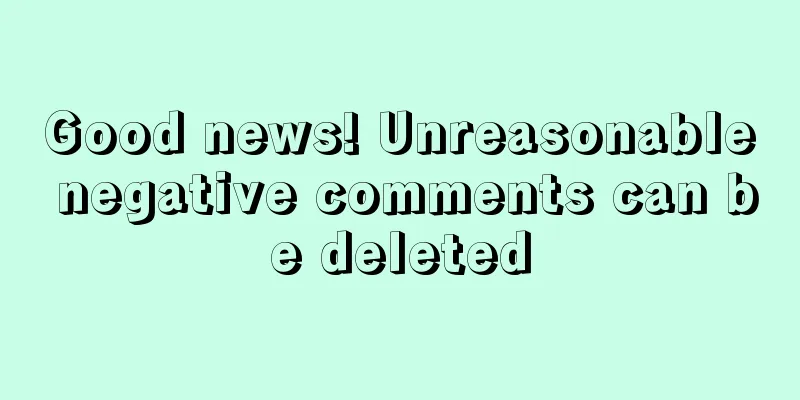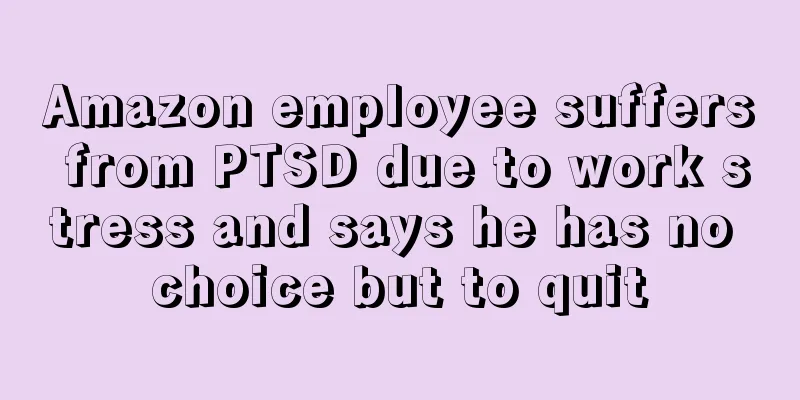Good news! Unreasonable negative comments can be deleted

|
Cross-border sellers have suffered from negative reviews for a long time. As the final rules on false reviews announced by the U.S. Trade Commission come into effect, eBay has updated its policy to delete unreasonable negative reviews under certain circumstances. The current situation where sellers on other platforms such as Amazon are hit hard by negative reviews is expected to improve in the future, which is a big benefit to the cross-border industry.
Final rule on fake reviews takes effect
In mid-August, the Federal Trade Commission announced final rules that will combat fake reviews by prohibiting the sale or purchase of items and imposing civil penalties on knowing violators. The final rules on fake reviews voted by the Commission will take effect 60 days after the date of publication .
Now that 60 days have passed since the announcement date , cross-border sellers have been discussing this matter recently, hoping that Amazon can enforce the rules and allow them to delete all unverified false negative reviews. The rules point out that one of the criteria for false reviews is "no actual experience of using the business or product."
Leaving false negative reviews without actually using the product is a phenomenon that exists on the Amazon platform. Some unscrupulous sellers in the industry deliberately give bad reviews to their peers to engage in vicious competition. In many cases, sellers have no way to deal with some malicious negative reviews. This phenomenon may change in the future .
Under the final rule on false reviews, the following conduct will be prohibited:
Fake consumer reviews, consumer and celebrity testimonials : The final rule prohibits the display of fake reviews and testimonials, such as those generated by artificial intelligence and reviews provided by people who have not actually used the company’s products. Businesses are prohibited from creating or selling such reviews, purchasing such reviews, obtaining reviews from company insiders, and distributing such reviews when the business knows they are false.
Purchasing Positive or Negative Reviews : The final rule prohibits businesses from offering payment or other incentives to obtain consumer reviews that express a particular sentiment, whether positive or negative, whether by explicit or implicit means.
Internal Reviews and Consumer Testimonials : The final rule prohibits certain reviews and testimonials written by company insiders, and sometimes companies should know that the review is operated by an employee or agent, such reviews will be prohibited, and reviews by immediate family members are also not allowed.
Company-controlled review sites : The final rule prohibits company-owned websites or entities from providing independent reviews or opinions of their own products.
Review Suppression : The final rule prohibits businesses from using legal threats, physical threats, intimidation, or other actions to prevent or remove negative reviews, and prohibits businesses from suppressing negative reviews.
Abuse of False Social Media Metrics: The final rule prohibits anyone from selling or buying false social media influence metrics, such as follows or views generated by bots or hijacked accounts.
Will Amazon enforce the rules?
This final fake review rule covers a lot of content. Some sellers pointed out that with this rule, if the fake reviews reported by sellers are ignored by Amazon, they can at least sue Amazon for violating the law.
An industry insider analyzed that based on this rule, some lawyers or law firms may want to make a name for themselves. When they find that many third-party sellers have been harmed by false reviews, they will file a class action lawsuit against Amazon, accusing it of failing to prevent and allowing false reviews.
So far, Amazon has not been hit hard enough that the platform doesn't care about fake reviews. Because of the abundance of products and the large number of good reviews, the probability of people buying a certain product on Amazon is high, but many people don't know that reviews can be easily faked, and Amazon allows this to increase profits.
Amazon does not combat the large number of fake reviews that exist. For example, a product can get thousands of positive reviews within a few days of its first listing . This is extremely unlikely because FBA delivery may not be that fast. Amazon directly displays these reviews without reviewing potential customer reviews, which shows that the platform has legal weaknesses.
Amazon also allows competitors’ destructive reviews to show up, such as bad reviews on competitor websites, which does directly affect sellers’ sales and profits, especially when a product’s star rating drops below 4 points, the product’s traffic will drop and shopping carts will not be seen. This means that Amazon is directly involved in sabotage by allowing, rather than combating, false, destructive reviews.
The question now is when such a lawsuit will come. Any business or seller on the Amazon platform works very hard because they want to get more sales and profits. It is fair to delete false negative product reviews and ensure that every review is real.
However, when the final rules go into effect, Amazon may try to use delaying tactics so that the platform does not have to change the current system for reviewing fake reviews.
eBay takes the lead and can delete unreasonable negative reviews in certain circumstances
Amazon has not yet taken action on the final rules, but eBay has changed its feedback policy at the end of October. This move is expected to make other platforms such as Amazon wait and see and follow suit.
eBay announced a new feedback policy in its Fall Seller Update that will allow certain negative and neutral reviews to be “removed” in specific circumstances to increase protection for sellers.
According to the new policy, when a buyer requests to cancel an order after placing an order and the seller refuses, the relevant negative comments will be deleted. At this time, it is likely that the negative emotions of the consumer caused them to leave negative comments, rather than problems with the product itself. For example, if a buyer purchases a set of golf balls and then requests to cancel the order because he finds the same product cheaper, but the seller refuses the request, the negative comments left by the buyer will be considered unreasonable and can be deleted.
In addition, when a buyer changes their mind about a purchase but is charged for a return shipping label on eBay, the negative comments they left will also be deleted. This is when the platform’s return shipping label triggered the buyer’s emotions, not the product itself. For example, if a buyer is dissatisfied with a product they received and leaves a negative review because they need to pay for an eBay return shipping label, this review can also be deleted because there is no other problem with the seller’s product transaction itself.
eBay also provided a specific case analysis, pointing out that if the seller's product description is clear, the buyer's negative feedback can be considered unreasonable and deleted. For example, if a seller sells a second-hand piece of clothing, and the description clearly indicates that it has stains, but the buyer still gives a negative review about this after purchasing it, the feedback can be deleted.
The negative review deletion scheme implemented by eBay is relatively reasonable. For negative reviews that do not involve the seller's products and transactions themselves, the platform will consider them unreasonable and such reviews can be deleted. This policy is welcomed by sellers and we look forward to the platform's implementation effect. At the same time, we also look forward to Amazon and other e-commerce platforms following up on the final rules for false negative reviews and implementing certain protections for cross-border sellers. eBay New regulations Negative reviews |
>>: A 24-year-old girl sold "slogan clothing" and made more than 1.8 million in a single day!
Recommend
Members' Day sweep! A large number of sellers were suddenly subject to second review
The numbers are being scanned one after another a...
Zebao’s parent company was sued for more than 50 million by its suppliers!
When many cross-border sellers experienced bankru...
What is Hanwen International? Hanwen International Review, Features
HVF (Shenzhen HVF International Freight Forwardin...
Fashion retailer Na-kd's sales exceed 2 billion Swedish kronor, up more than 56%
According to foreign media reports, Swedish fashi...
Product infringement defendant, multiple platform sellers collectively respond to rogue law firm lawsuit
Recently, a seller reported to Yien.com that a la...
Japan's state of emergency will be extended until June 20!
According to Japan's NHK TV, the Japanese gov...
Many US platforms have removed Chinese surveillance products! They claim it is a "human rights violation"
Recently, according to foreign media Techcrunch a...
What is Social Blade? Social Blade Review, Features
Social Blade is an Internet video statistics websi...
What is Chuangxiang Foreign Trade Software? Chuangxiang Foreign Trade Software Review, Features
Chuangke Network Technology Co., Ltd. - Chuangxia...
What is DPD? DPD Review, Features
DPD is a world-renowned express carrier and parce...
What is Starlink? Starlink Review, Features
Starlink (Shenzhen Starlink Network Technology Co....
10,000 pieces of children's clothing were recalled and sold on multiple platforms
If you pay attention to the CPSC, you will find t...
What is Hello Fresh? Hello Fresh Review, Features
Founded in 2012, Hello Fresh is a European semi-f...
What is the new Amazon-Apple deal? Amazon-Apple deal Review, Features
In November 2018, Apple and Amazon signed a new a...
What is dekinmax? dekinmax Review, Features
dekinmax is committed to producing safe and effect...









